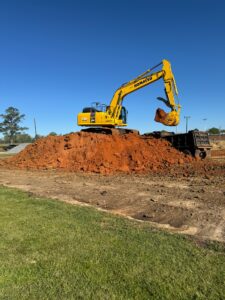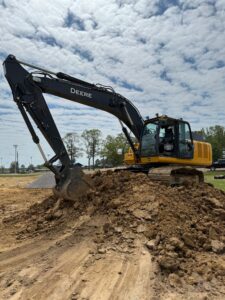Civil construction has seen remarkable advancements over the years, particularly in the realm of earthmoving. Once dependent on manual labor and rudimentary tools, today’s earthmoving projects are powered by cutting-edge technology. GPS-guided machinery, for instance, has revolutionized the precision and efficiency of tasks like grading and excavation. These systems reduce errors by up to 75%, ensuring projects stay on schedule and within budget.
Another innovation is the use of autonomous vehicles. According to a study by McKinsey, the implementation of autonomous equipment can cut operating costs by as much as 20%. These machines are not only safer but also work continuously without fatigue, increasing productivity on construction sites.
Furthermore, drone technology has become a game-changer in site surveying and monitoring. Drones can cover vast areas quickly, providing real-time data that helps contractors make informed decisions. With the ability to create detailed 3D models of the terrain, drones have reduced the time needed for site surveys by nearly 50%.
These technological advancements are not just about efficiency; they also contribute to sustainability. For example, GPS-guided equipment minimizes fuel consumption and reduces carbon emissions. The integration of technology into earthmoving and civil construction is a testament to the industry’s commitment to innovation, safety, and environmental stewardship.





